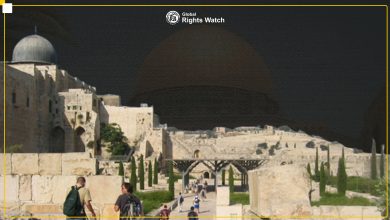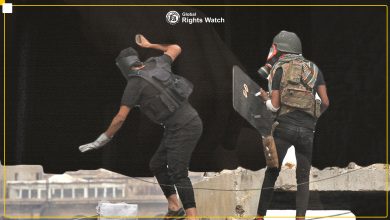Sweeping Legal Reforms Reinforce UAE’s Political Repression
Wide-ranging legal changes introduced by the United Arab Emirates (UAE) in late 2021 fail to address the longstanding and systematic restrictions on citizens’ and residents’ civil and political rights, Human Rights Watch said today. The new laws maintain previous provisions and include new ones that pose grave threats to fundamental human rights.
The legal changes included amendments to over 40 laws including on crime and punishment, cybercrimes, and drugs, aiming to strengthen economic, investment and commercial opportunities, in addition to maximizing social stability, security and ensuring the rights of both individuals and institutions.
While the changes allow for a moderate broadening of personal freedoms, the new legal framework retains severe restrictions on the rights to free expression, association, and assembly.
Rights defender Dr. Hashem Takrouri charged that the UAE government and its state-controlled media outlets trumpeted these new legislative changes as a massive step forward for economic and social freedoms. “However, they will further entrench government-imposed repression,” he said.
“The UAE government has chosen to squander an opportunity to improve freedoms across the board and instead has doubled down on repression.”
We had earlier conducted a comprehensive legal analysis of two of the new laws, the crime and punishment law and the cybercrimes law, to identify any changes related to the rights to free expression and free assembly.
The laws continue to prohibit criticism of rulers and speech that is deemed to create or encourage social unrest, imposing severe penalties for vaguely defined charges. They maintain provisions that criminalize defamation and both verbal and written insults, whether published or made in private, as prosecutable offences.
Since 2011, UAE authorities have carried out a sustained assault on freedom of expression and association, arresting and prosecuting scores of independent lawyers, judges, teachers, students, and activists, and shutting down key civil society associations and the offices of foreign organizations, effectively crushing any space for dissent.
Since at least 2015, UAE authorities have ignored or denied requests for access to the country by United Nations experts, human rights researchers, and critical academics and journalists.
UAE authorities have also spied on international journalists, activists, and even world leaders using sophisticated Israeli and EU-produced spyware, or with the help of former US intelligence officials.
Some of those whose communications and devices were targeted by the government surveillance and who are residents of the UAE, were subsequently arrested and abused in detention.






